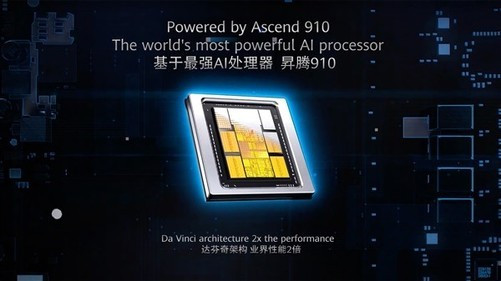

Recently, there have been reports that despite relevant restrictions, Huawei is still actively looking for ways to obtain high-performance chips. According to a report from an internationally renowned think tank and a technical analysis agency, Huawei may have obtained a large number of Astron 910 AI chips from a world-leading semiconductor manufacturing company through special methods, and in the past year alone, this number may reach 2 million.
The think tank's report pointed out that the semiconductor maker has produced a large number of Ascend 910B chips for a Huawei affiliate and has shipped them to the mainland Chinese market. This behavior is accused of serious violations of export control policies in some countries. The report mentioned that people familiar with the matter revealed that the semiconductor maker has produced more than 2 million Astron 910B chip dies and delivered them to Huawei. However, it is not clear whether Huawei can obtain enough high bandwidth memory (HBM) chips and integrate them with them, but this possibility is considered to be higher. The report also mentioned that since a country announced restrictions on the export of high-bandwidth memory in August 2024, the actual effective time was delayed to December of the same year, this provided Huawei with sufficient time to reserve relevant chips for subsequent use.
Despite this, industry experts believe that although this report reflects the fact that Huawei is working hard to break through technical limitations, due to the lack of direct evidence to support it, there is still a great uncertainty in its content, which cannot be fully confirmed or completely denied. The
Ascend 910 chip was released in 2019 and is designed using the Virtuvian AIchiplets architecture, including a computing unit, a NimbusV3I/O module, four HBM2E memory modules and two fill modules, and is manufactured based on a 7nm enhanced process. However, since 2020, due to changes in the external environment, Huawei has had to adjust its supply chain strategy and transfer part of Astend 910 production to another domestic semiconductor manufacturing company, adopting the N+1 process (thinked by the outside world as the first generation 7nm technology), and renamed the product to Astend 910B.
Since then, Huawei has also developed the more advanced Astron 910C, and plans to use the more advanced N+2 process in China to manufacture. It is said that the production of Astend 910B and Astend 910C no longer relies on the aforementioned international semiconductor manufacturers, but according to industry rumors, their yield rate may be around 75%, and the specific data cannot be verified.
